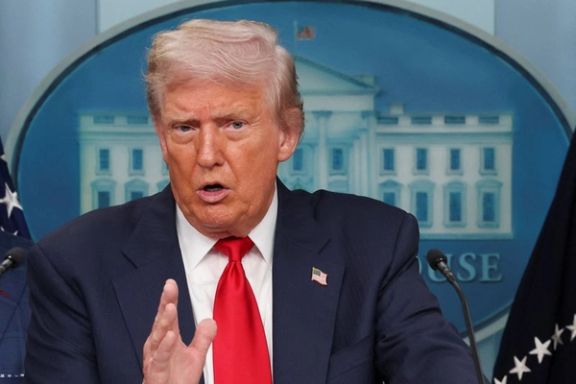Tehran downcast over US silence on softened nuclear stance

Tehran moderates are openly signaling readiness for a return to nuclear talks, hinting at accepting some restrictions on its activities but Washington appears unmoved.

Tehran moderates are openly signaling readiness for a return to nuclear talks, hinting at accepting some restrictions on its activities but Washington appears unmoved.
“We stated to the (US) negotiating party that we are willing to build trust, but it seems as though they have pretended to be asleep,” Vice President Mohammad Reza Aref said on Tuesday—the clearest suggestion yet that reluctance may be coming from the United States.
“Even direct negotiations can happen,” he added, under balanced conditions. “The Islamic Republic’s approach to negotiations is in line with what the people want.”
The remarks followed Deputy Foreign Minister Majid Takhtravanchi’s statement a day earlier that Iran was prepared to limit its nuclear program if US sanctions were lifted.
There was no public response by Washington.
US Secretary of State Marco Rubio along with foreign ministers of France, Germany and Britain set an informal end-August deadline for a new nuclear deal, warning failure would mean triggering the so-called "snapback" of UN sanctions.
‘No rush’
But no response came from Washington. President Donald Trump told reporters in mid-July that the urgency to engage with Iran had vanished after US strikes in late June.
“They would like to talk. I’m in no rush to talk because we obliterated their site,” Trump told reporters mid July, implying he was content to let pressure build.

European officials have warned Tehran that unless it fully cooperates with the International Atomic Energy Agency (IAEA), the “trigger mechanism” for snapback could be activated, restoring UN sanctions this fall.
Red lines
Despite the conciliatory gestures, Iran’s red lines remain intact.
Takhtravanchi told Japan’s Kyodo News this week that Tehran would not relinquish what it called its right to uranium enrichment.
Officials also stressed that Monday’s visit by IAEA Deputy Director General Massimo Aparo was unrelated to inspections, and Tehran continues to bar IAEA chief Rafael Grossi, accusing him of complicity in the recent attacks.
Reformist daily Arman Melli called Takhtravanchi’s offer “a new prudent decision regarding the nuclear dossier,” noting Iran’s aim to avoid the trigger mechanism while securing sanctions relief to ease its deep financial crisis.
Hardline outlets, meanwhile, have expressed anger at the IAEA and the UN Security Council’s failure to condemn the strikes, and domestic critics warn that opening talks with Washington could be politically costly.
Divisions and outlook
While the Foreign Ministry and its diplomats remain cautious about re-engaging the West, the Presidential Office appears more eager to pursue direct negotiations.
Vahideh Karimi, political editor of Shargh, warned that the combination of Iran’s tentative flexibility and Washington’s hesitation could prolong the stalemate, calling Takhtravanchi’s proposal “realistic” but fragile.
She also pointed to Tehran’s missile program — repeatedly declared off-limits after the war with Israel — as a potential deal-breaker.
Others, like Ham Mihan columnist Majid Younesian, argue the balance of forces is shifting in Iran’s favor and that confrontation with the US and Europe must evolve.
“Change does not mean surrender, as hardliners claim. Not all problems need to be solved with guns, slogans, and provocations,” he wrote.